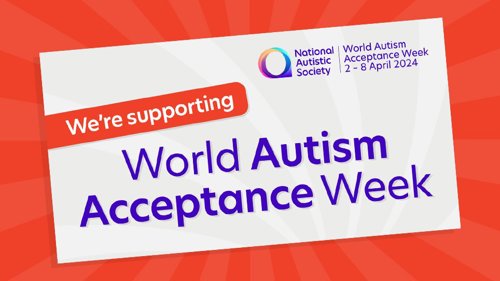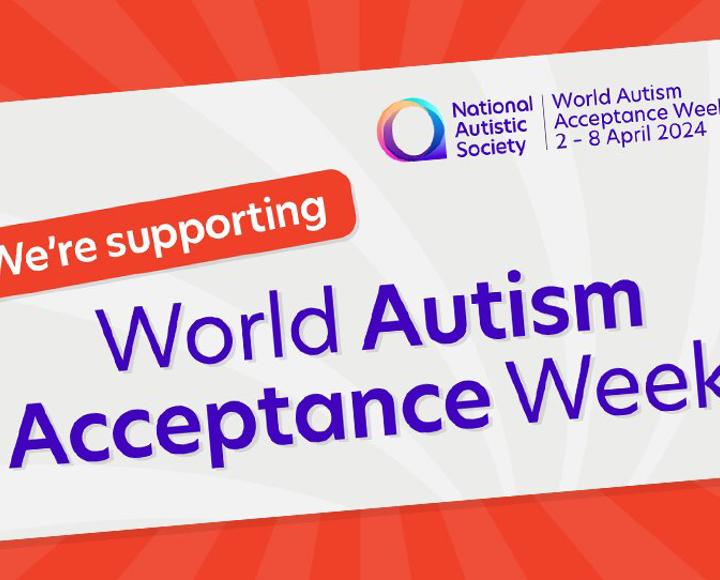To mark #WorldAutismAcceptance Week (2-8 April), we caught up with Tina Waltz, Scheme manager at The Trees & The Roses, who gives us an insight into supporting people with autism and the assumptions people often make about autistic people.
What is Autism?
Autism is a lifelong developmental disability which affects how people communicate and interact with the world. More than one in 100 people are on the autism spectrum and there are around 700,000 autistic adults and children in the UK.
Read Tina's interview below.
What’s the ethos/approach at The Trees & The Roses in supporting service users who are autistic?
At The Trees & The Roses, we use various approaches to fit in with the support needs of the individuals. Much of this is very similar to many other support services whose focus is on promoting independence and inclusion. The difference may be around how we support people to get to those points.
We have to consider how each autistic person is affected and what level of support they need. We tend to lean towards SPELL (Structure, Positive approaches and expectations, Empathy, Low arousal, Links), TEACCH (this organises the physical environment and develops schedules and work systems for children, young people, and adults), positive behaviour support and active support, with a mix of different communication techniques developed to fit the individual.
What training have you had to undertake?
Over the years there have been a lot of training, both as a team and personally. We started initially with two-day TEAACH and Autism training (some bespoke to the service and individuals we support), sensory processing, with lots of regular follow ups.
In 2004, I took on the role of trainer for non-violent crisis intervention which later became MAPA (Management of Actual and Potential Aggression). This is about responding to people in a non-judgemental way, treating them with respect and dignity whilst supporting them to stay safe. It is an approach that staff may use to support people, who display challenging or aggressive behaviour, in a positive way.
What's the difference in caring for autistic service users?
How we communicate, how we speak to the person, and how we manage the environment for them. Staff very often need to change their approaches and perspectives on traditional care. For example, using fewer words rather than lots of conversation, to give the service users time to process what is being said. It is important to be able to recognise triggers and understand that we as staff can influence the environment of the autistic person just with their own demeanour.
What assumptions do you find people often make about autistic people? What is the reality?
Where do I begin with this! The assumption that all autistic people are like Rain Man and are maths geniuses or that non-speaking autistic people do not have capacity or understanding just because they don’t communicate with words. In fact, it is only around 5% of autistic people who are savant, though many have special interests.
Another assumption is that people with lower support needs are not autistic and don’t find life in the neurotypical world as much of a challenge as those with higher support needs. This is not necessarily the case as many with lower support needs overcome similar challenges and quite often mask their struggle to fit in.
Also, that ‘we are all a little bit autistic’. A statement that can be quite misleading. While we all have personality traits that can be compared to an autistic person, our lives are not overwhelmed or even closely affected in the same way as a person who is diagnosed.
How does it feel when you see service users making progress or becoming more independent?
The resilience that autistic people demonstrate in general and what it takes for them to get through any given day is amazing. Progress is often measured differently so I feel very proud of those we support and the staff who support them. No matter how small it may seem to the outside world it may be immense and deeply personal to the individual who overcome so much to develop skills and independence.
Why type of support do you and your staff provide to service users at The Trees & The Roses?
The support at The Trees & The Roses is 24/7, with practical support for everyday things like cooking, bathing, and housework. Additional to this are more objective community sessions that involve some personal challenges and development. The team try to support people to have a normal life as possible.
What do you enjoy most about your job?
This is difficult to say as I enjoy all of it really, especially when there is a positive outcome for a service user.





